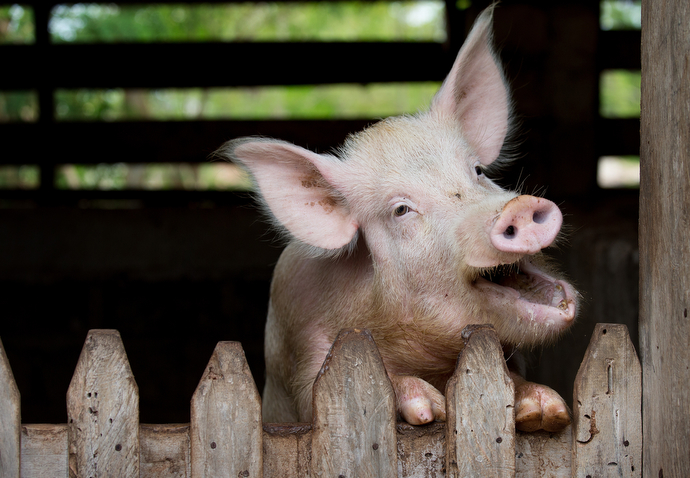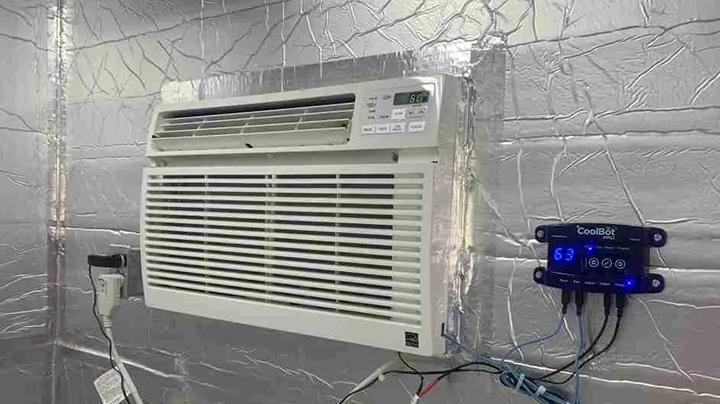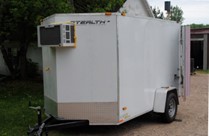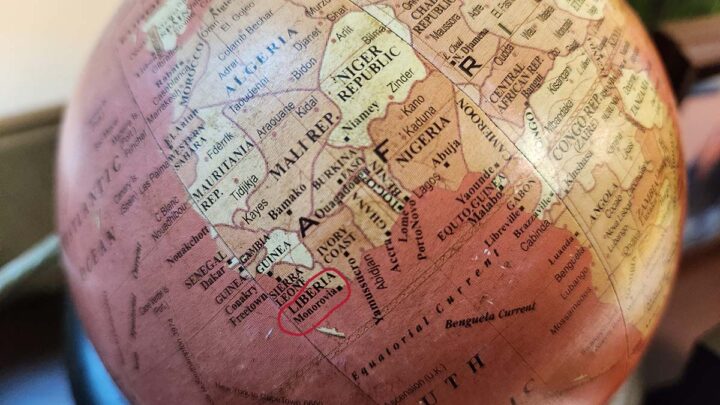
Subsistence Agriculture is very much a part of the culture and history in countries like Liberia in West Africa. For centuries, households in rural areas have existed by harvesting the numerous fruits and vegetables that grow wild in the forests. Hunters would find animals that would be cooked and eaten by families to provide protein to those who labored daily to find and cook food for each day. Day by day, this cycle has been repeated—and still is.
Over the course of time, many rural families have seen the benefit of having free range chickens, pigs, snails, bees, and goats (to a much smaller degree) around their homes and villages. For the most part, these animals provide meat for special occasions.
Through the work of UMCOR Sustainable Agriculture and UMC missionaries who have been trained in the field, quite a few farming families have caught a vision of raising animals not only for feeding their own families and friends, but also for providing meat for markets. Income from the sale of meat can in turn enable families to educate their children and buy other staples. https://um-insight.net/in-the-world/global-health/agriculture-is-life-for-liberian-united-methodists/
There is one major problem—refrigeration. Most rural places in West Africa are not electrified. Refrigerators and freezers are luxury items. Therefore, when meat is available in the local markets, it often hangs for a while until sold or until the meat is wasted.
Farmers in the Ganta region, with the help of the Rev. Priscilla Legay Jaiah-Gilayeneh, have made great progress on and near the Ganta Mission Station. They have learned how to raise animals which have been domesticated and are used for food for families, friends, and persons who are hospitalized at Ganta United Methodist Hospital.
Many of these farmers have formed a cooperative—a coop (pronounced coo) in order to work together to raise their pigs in a safe environment, slaughter them in a sanitary facility, and get the pork to market in places like Monrovia and beyond.

Refrigeration is vitally important so that farmers can market their meat in this sub-tropical environment. The Liberians have requested that their friends from North Carolina help them build a slaughterhouse for their animals. The animals will be harvested in a responsible manner. The carcasses will be placed in a cooler to cure, and then the meat will be wrapped in a sanitary environment before taken to market. Since there is no refrigerated truck available, North Carolina UMC partners will rehab an old trailer at MERCI into a mobile refrigerated unit. Both the cooler and the mobile unit will be shipped over to Liberia—as neither unit can be procured easily in Liberia.

A work team from the NC Conference will go to Liberia in May 2023 to help the Liberians construct the cooler, learn how to prepare the pork for market, and deliver the meat to potential customers.
(https://nccumc.org/outreach/2023/01/mission-opportunity-in-liberia/)
In the meantime, Liberian farmers are making concrete blocks for their new abattoir. Income received from the market will provide a way for the farmers to send their children to school and to sustain their agricultural interests.
North Carolina Methodists have had a connection with Ganta since Dr. George Harley and his wife Winifred from North Carolina established the Mission in 1925. https://www.bu.edu/missiology/2020/02/21/harley-george-and-winifred.
We now have an opportunity to help farmers in Ganta, Liberia become self-sufficient.
Please consider helping by giving to this Conference Advance project – #S-00221.

